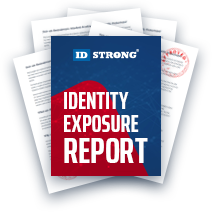What is Medical Fraud and How to Detect It
Table of Contents
- Medical Fraud and Abuse in Health Care
- Billing for Services Not Rendered
- Billing for a Non-Covered Service as a Covered Service
- Misrepresenting Dates of Service
- Misrepresenting Locations of Service
- Misrepresenting Provider of Service
- Waiving Deductibles and/or Co-Payments
- Incorrect Reporting of Diagnoses or Procedures
- Overutilization of Services
- Corruption (Kickbacks and Bribery)
- False or Unnecessary Issuance of Prescription Drugs
- Health Insurance Frauds
- Health Care Fraud Investigations
- Report Healthcare Fraud and Protect Yourself
- By David Lukic
- Published: Oct 07, 2020
- Last Updated: Mar 18, 2022
Medical fraud and abuse in health care is most often committed by large, organized crime groups and sometimes individual criminals. Regardless of who commits this type of crime, it costs the healthcare industry a lot of money, and they, in turn, pass that onto subscribers and patients.
There are a few different types of health care fraud perpetrated by criminals to steal money or obtain services or medical supplies.

Medical Fraud and Abuse in Health Care
Patients are encouraged to review their medical bills, understand their insurance coverage, and report suspicious or erroneous charges to their insurance company and appropriate authorities as soon as they note anything unfamiliar. Self-reporting is one of the best ways to protect yourself and others from medical fraud and predatory healthcare providers.
According to the Association of Certified Fraud Examiners (ACFE), the top ten most common types of medical scams and abuse in health care are:
Billing for Services Not Rendered
Medical fraud involving billing for services not rendered refers to a deceptive practice where healthcare providers or facilities submit claims for medical services not given to patients.
The "add-ons" often associated with this fraud include consultations, general checkups, diagnostic tests, and simple surgeries. This sort of fraud can occur at all levels, including personal physicians, clinics, large hospitals, or specialty healthcare providers.
Billing for a Non-Covered Service as a Covered Service
Insurance policies cover a set of procedures and medications based on factors such as whether the doctor is out of network or their specialty. Billing for non-covered services refers to fabricating the paperwork or language of a treatment to correlate with what the insurer will pay for.
Examples include:
- Putting elective cosmetic surgeries under "medically necessary" procedures.
- Misrepresenting experimental or unproven treatments as established treatments.
- Outright billing for services that are expressly excluded from coverage by insurance policies.
Misrepresenting Dates of Service
There are a few ways that an office can execute this form of medical fraud. The most common is submitting claims for more visits than was necessary since each visit will count as a new billable event. Providers accomplish this by prescribing or performing multiple services in a single visit but claiming that each service requires another consultation.
Another form of misrepresenting dates of service is lying about when a service occurred so that it falls within a coverage period or goes into a more advantageous billing cycle.
Misrepresenting Locations of Service
Fraud violations can also revolve around where the "treatment" takes place. This goes hand-in-hand with misrepresenting dates of service. Providers claim that certain required services are performed at their offices when the patient is self-treated at home.
For example, imagine a burn or surgical patient visiting the doctor's office to redress their bandages. However, the doctor hands the patient several rolls of bandages and disinfectant and tells them to do it at home. A fraudulent provider may claim that the patient continued to get in-office care and receive corresponding payouts from their insurance company.
Misrepresenting Provider of Service
You speak with your doctor for several hours across dozens of visits. You get to know and, more importantly, trust them during these sessions. When the day of treatment finally comes, you're approached by a complete stranger.
For many, this is a terrifying possibility. Especially when their health care needs are life-threatening or delicate such as in the case of childbirth. Fraudulent providers will misrepresent who the overseeing doctor is by signing their name on the claim but having a less experienced or educated practitioner perform it.
Waiving Deductibles and/or Co-Payments
Many insurance plans prohibit healthcare providers from waiving a patient's out-of-pocket expenses. Requiring a bare minimum deductible is a deterrent for patients that would otherwise come in for every minor ache or stubbed toe.
Yet, some healthcare providers still "waive" deductibles and copayments, but they're just passing the cost along to insurance companies. This type of fraud doesn't lead to an increased profit per visit, but it may increase the volume of patients an office treats due to a lower barrier to treatment.
Additionally, this practice puts an extra burden on insurance companies that will inevitably roll back to a higher premium for policyholders.
Incorrect Reporting of Diagnoses or Procedures
Fear is a powerful emotion, and we're told from an early age that money can't buy health. While that statement has definite truth, that line of thought allows unscrupulous healthcare providers to abuse their patients.
These doctors willfully misdiagnose an illness or tack on a laundry list of unrelated health conditions to the bill. They'll hospitalize people for far longer than necessary and coax scared patients into multiple unnecessary and expensive tests.
Another related form of fraud is "unbundling." This refers to the practice of separately billing services that are typically grouped at a reduced cost. Think of it as paying $10 for separate bags for your sandwich's turkey, cheese, and bread, rather than $8 for the whole sandwich.
Overutilization of Services
Overutilization of services is similar to incorrect reporting, but the healthcare provider is preying on a real problem. It involves keeping patients on a treatment plan for the sole purpose of earning more money.
For example, a therapist may convince a gambling addict to continue with "4 sessions a week" longer than necessary. This will continue for as long as the patient's coverage holds out, by which time the patient will be miraculously cured of their addiction.
Corruption (Kickbacks and Bribery)
In 2021, health care was an $808 billion industry, with the US spending double the global average on it. Any business with that amount of money injected into it is bound to see large amounts of corruption and unethical practices like kickbacks and bribery.
Some healthcare providers recommend their colleagues to patients. While this isn't inherently unethical, things get shady when they receive payments for doing so.
For example, a patient goes to the optometrist (eye doctor) and is told there are "concerning signs of glaucoma." The optometrist then recommends their trusted colleague specializing in glaucoma diagnoses while receiving a referral fee.
While patients should always take a doctor's warning seriously, doing a little research on your own doesn't hurt. This situation can lead to people visiting uncaring or unskilled practitioners who are better at networking than treatment.
False or Unnecessary Issuance of Prescription Drugs
This type of fraud is unique in that both patients and providers perpetrate it. The past few decades have seen incredible increases in opioid dependencies and equivalent damage to insurance companies and healthcare programs.
Doctors who unnecessarily prescribe drugs may receive kickbacks from pharmaceutical companies. They may also engage in illegal drug trafficking as the "street price" of painkillers can rise to ten times the price of what's charged over the counter.
Opioid addicts participate by tricking doctors into giving them a prescription. If they can't fool a professional, many people will resort to forging one themselves.
Health Insurance Frauds
Health insurance fraud is when fraudsters (sometimes shady medical practices) bill insurance companies for procedures and medical supplies that are not needed or performed.
Drug Fraud
Purveyors of medicinal drugs may pass them off as something they are not. They may water down dosages or make promises about medications that are not even FDA certified and try to sell them. This practice is called drug fraud.
Medical Fraud
According to the National Health Care Anti-Fraud Association (NHCAA), tens of billions of dollars are lost each year to medical fraud. Medical fraud works by getting people to sign up for healthcare and charging them fees but never supplying the medical resources. Sometimes they use ads for cheap or free medical services, but in reality, these are just scams designed to steal money from people who require actual medical treatment.
Another component of medical fraud is identity theft, where someone’s medical information is used to impersonate them or receive services in place of them. This occurrence can be very damaging to the victim, and even fatal if incorrect information is used to treat them.

Health Care Fraud Investigations
Medical scams are a federal offense. Therefore, the FBI is the government agency in charge of monitoring and administering justice to perpetrators of health care fraud. The minimum prison sentence for health care crimes is ten years, along with steep fees. If someone was injured or died as a result of the health care scams, the prison term can go up to 20 years.
Congress created the “Coordinated Fraud and Abuse Control Program” to coordinate federal, state, and local agencies in pursuit of these crimes.
Report Healthcare Fraud and Protect Yourself
- Always keep your health insurance cards safe and never give out the number unless to a trusted organization. Don’t ever give out that information online or over the phone.
- Avoid “free” medical services or offers of cheap medication.
- If you are a victim, contact the FBI and report it immediately.
- Review all your medical bills and look for suspicious charges, procedures never performed, and other errors.
- Inform yourself of your health insurance benefits and the laws surrounding medical scams.



















































































































